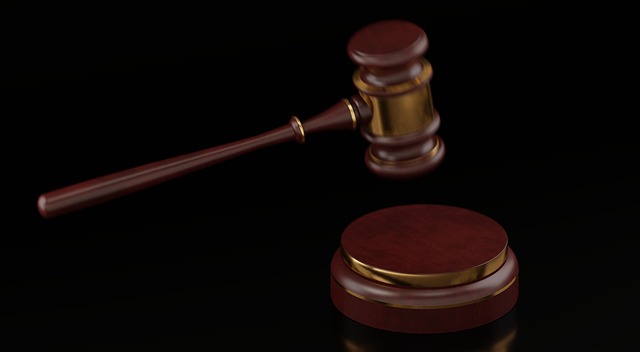RF Regulatory Agency investigations are crucial for upholding communication standards and device safety, balancing enforcement with defendant rights protection during trial. These processes involve document reviews, evidence collection, and stakeholder interviews to ensure compliance with emission standards and safety protocols. Regulatory agencies safeguard defendant rights in complex cases like white-collar crime, protecting their interests through fair hearings and rigorous oversight of modern technologies' radio frequency spectrums. Understanding your rights and cooperating with investigators while avoiding self-incrimination is key for defendants facing charges. A robust legal strategy with specialized knowledge ensures the protection of defendant rights, minimizes penalties, maintains operational integrity, and fosters a fair trial process.
In an era increasingly dominated by radio frequency (RF) technology, understanding RF regulatory agency investigations is paramount for businesses and individuals alike. This comprehensive guide delves into the intricacies of these inquiries, highlighting the critical role regulatory agencies play in protecting defendant rights while ensuring fair and safe technological practices. From common triggers to navigating the investigation process and strategic defenses, this article equips readers with essential knowledge to safeguard their interests during RF regulatory agency trials.
- Understanding RF Regulatory Agency Investigations: A Comprehensive Overview
- The Role of These Agencies in Protecting Defendant Rights
- Common Triggers for RF (Radio Frequency) Regulatory Inquiries
- Navigating the Investigation Process: Defendant's Rights and Obligations
- Strategies to Safeguard Your Interests During RF Regulatory Agency Trials
Understanding RF Regulatory Agency Investigations: A Comprehensive Overview

RF Regulatory Agency Investigations play a critical role in upholding communication standards and ensuring the safety of electronic devices across the country. These inquiries are comprehensive processes designed to protect both the public interest and individual rights. When investigating potential violations, regulatory agencies must balance their duties to enforce rules with the need to safeguard defendant rights during trial, especially in cases involving corporate and individual clients accused of white-collar and economic crimes.
The RF (Radio Frequency) regulatory bodies conduct thorough examinations, examining compliance with emission standards, device performance, and safety protocols. During these investigations, they may review technical documents, collect evidence, and interview stakeholders. The process is meticulously documented to ensure fairness while considering the complexities of modern technologies. Understanding the intricate nature of these investigations is essential for both industries and individuals to navigate potential legal challenges effectively.
The Role of These Agencies in Protecting Defendant Rights

Regulatory agencies play a pivotal role in balancing the scales of justice by ensuring that all parties involved in legal proceedings, especially defendants, have their rights protected throughout every stage of an investigation and subsequent enforcement process. These agencies act as watchdogs, upholding ethical standards and fair practices to prevent any bias or misconduct that could sway the outcome of a trial.
Their role is particularly crucial when dealing with complex cases such as white-collar and economic crimes, where defending individuals often face an uphill battle against powerful institutions. By meticulously navigating all stages of the investigative and enforcement process, these agencies enable defendants to present their side, ensuring they receive a fair hearing and have the opportunity to win challenging defense verdicts.
Common Triggers for RF (Radio Frequency) Regulatory Inquiries

RF (Radio Frequency) Regulatory inquiries often arise from various triggers, each with its own set of implications for defendants facing charges related to white-collar defense or general criminal defense strategies. One common trigger is non-compliance with RF emission standards, where devices such as wireless communication equipment might emit signals exceeding permitted levels. This can lead to investigations into potential violations of regulations aimed at protecting public health and safety from excessive radiation exposure.
Another significant trigger is the suspicion of unauthorized use or misuse of radio frequency spectrums. Given the valuable nature of these spectrums, which are essential for modern wireless technologies, regulatory agencies closely monitor and enforce rules governing their allocation and utilization. Defendants involved in white-collar and economic crimes, such as spectrum hacking or illegal access, may find themselves at the center of RF Regulatory Agency investigations, where protecting defendant rights during trial becomes a critical aspect of legal representation.
Navigating the Investigation Process: Defendant's Rights and Obligations

Navigating the investigation process, especially as a defendant, can be daunting. It’s crucial to understand your rights and obligations to protect yourself effectively. During an RF Regulatory Agency investigation, defendants have the right to remain silent, ensuring their statements cannot be used against them in court. They are also entitled to legal representation, allowing them to build a robust defense strategy with the help of attorneys skilled in navigating these complex regulatory landscapes.
Cooperating with investigators while safeguarding your interests is key. This involves providing relevant documentation and information but refraining from any self-incriminating statements. A well-prepared and challenging defense can lead to winning outcomes, including acquittals or reduced charges, as demonstrated by successful verdicts for his clients in jury trials.
Strategies to Safeguard Your Interests During RF Regulatory Agency Trials

When facing an RF Regulatory Agency investigation, safeguarding your interests during a trial is paramount. One key strategy involves assembling a robust legal team with expertise in wireless telecommunications law. This team should be adept at navigating complex regulatory landscapes and have a proven track record of achieving extraordinary results for their clients. A well-prepared defense can ensure that your respective business’s rights are protected, minimizing potential penalties and maintaining operational integrity.
Additionally, maintaining open lines of communication with regulators early on is crucial. Engaging in transparent dialogue can help clarify expectations and mitigate misunderstandings. While the general criminal defense may vary depending on the case, a proactive approach, combined with strong legal representation, can significantly influence the outcome. This includes providing comprehensive documentation, cooperating within legal limits, and presenting compelling arguments to counter allegations, ultimately fostering a fair trial process.
RF Regulatory Agency Investigations play a vital role in balancing the need for technological innovation with the protection of public safety and defendant rights. By understanding the triggers, process, and strategic approaches, entities facing such inquiries can better navigate these complex investigations while safeguarding their interests during subsequent trials. This comprehensive overview highlights the importance of proactive measures to mitigate risks and ensure fair treatment within the regulatory landscape.






